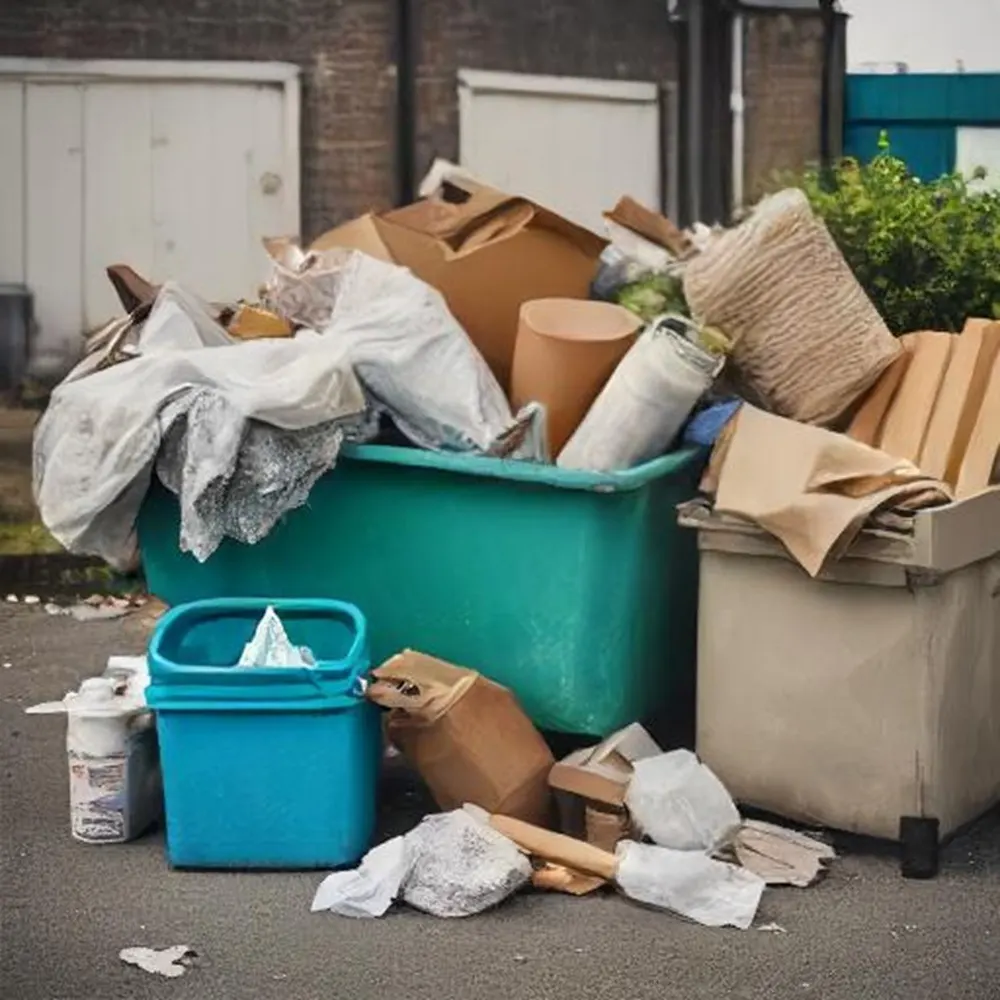What Rubbish Can I Put in a Skip?
When hiring a skip, it's essential to know what can and cannot be placed inside. While skips offer a convenient solution for a wide range of materials, certain restrictions ensure safety, environmental compliance, and efficient waste management.
Please note the below guidelines, and feel free to contact us if you have any questions!
Accepted Skip Contents:
- General Household Waste, such as furniture, carpets, wood, packaging, domestic rubbish, and other non-hazardous materials;
- Construction and Demolition Waste, such as bricks, concrete, rubble, tiles, plasterboard, and ceramics;
- Garden Waste, such as branches, leaves, grass cuttings, soil, and other green waste generated from gardening;
- Metals, such as steel, iron, aluminium, and copper,
- Inert Waste, such as soil, stones, sand, and clay; and
- Non-Hazardous Commercial Waste, as produced by businesses such as factories, restaurants, hotels, offices and warehouses.
Materials Prohibited in Taylors Skip Hire's Skips:
For safe and compliant disposal, certain items require specific handling or cannot be placed in a general waste skip. Here's how to manage these items:
By arrangement only:
Plasterboard, asbestos (requires a separate skip), fridges/freezers, televisions/monitors/computers, mattresses, car batteries, and large tree stumps and roots (no larger than 2 inches in diameter) can be accepted but only by prior arrangement.
Under no circumstances:
Gas cylinders/empty aerosols, tyres, clinical/medical waste, solvents, liquids, oil, hazardous/toxic material, and food waste are strictly prohibited.
Solvent paint cans, empty silicone tubes, adhesive tubes, and Hilti gun cartridges must be cleaned and washed out; otherwise, solvent-based paint tins are considered hazardous.
Considerations for Difficult Items
- Asbestos: Due to its hazardous nature, asbestos requires special consideration. Specialised removal and disposal services are required for asbestos removals.
- Car Tyres: Local recycling centres, tyre retailers and even mechanics may have specific disposal options for used tires.
- Electronic waste: E-waste should be taken to designated recycling facilities and disposed of in accordance with the WEEE (Waste Electrical and Electronic Equipment recycling) directive.
- Fridges & Freezers: Appliances like fridges and freezers contain hazardous refrigerants that require proper disposal.
- Liquids: Skip containers are not suitable for liquids of any kind, including paints, oils, solvents, or liquid chemicals. Different liquids have different recycling requirements; councils and local authorities may be able to advise.
- Fluorescent Tubes & Lightbulbs: These lightbulbs contain hazardous substances and must be recycled separately. Local recycling centres frequently have drop-off points for fluorescents.
- Gas Bottles: Gas bottles and similar pressurised containers pose a risk for our skip hire staff. Gas suppliers or local recycling facilities often accept these for appropriate handling.
- Clinical Waste/Medical Items: Skip hire does not cover clinical waste or medical items. These should be handled according to specific regulations and guidelines to ensure proper disposal.
- Items Containing POPS (Persistent Organic Pollutants): Materials containing POPS, such as certain types of chemicals or pesticides, should not be placed in skips. They require specialised disposal methods to avoid environmental harm.
Hire a skip from Taylors Skip Hire and allow our experts to handle all the hard work! We can also provide site clearances on request. Get a skip hire quote today!




